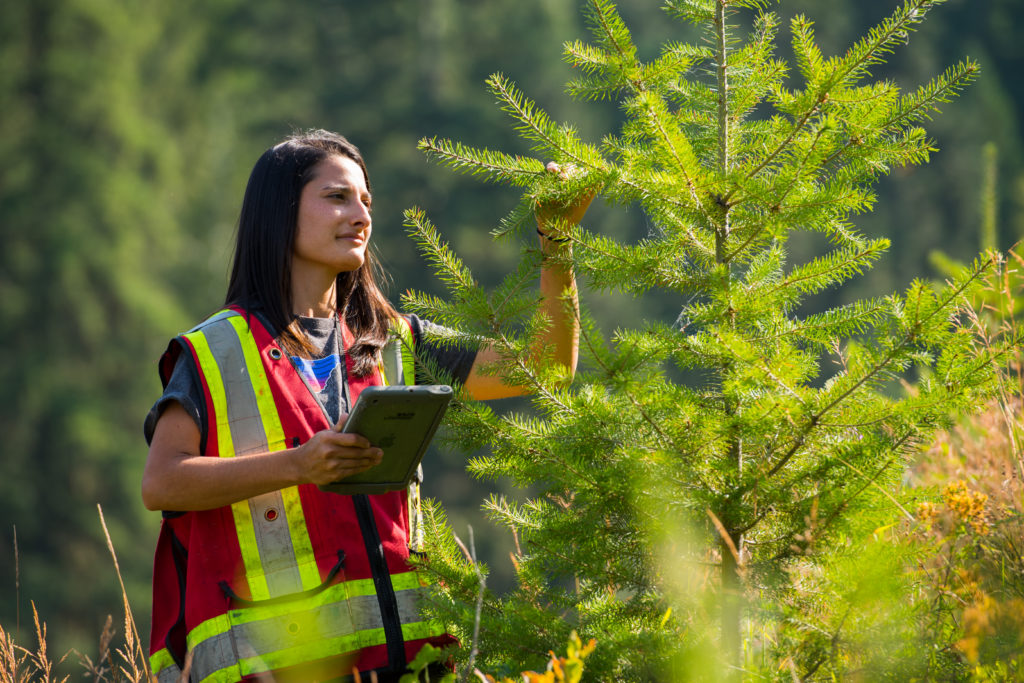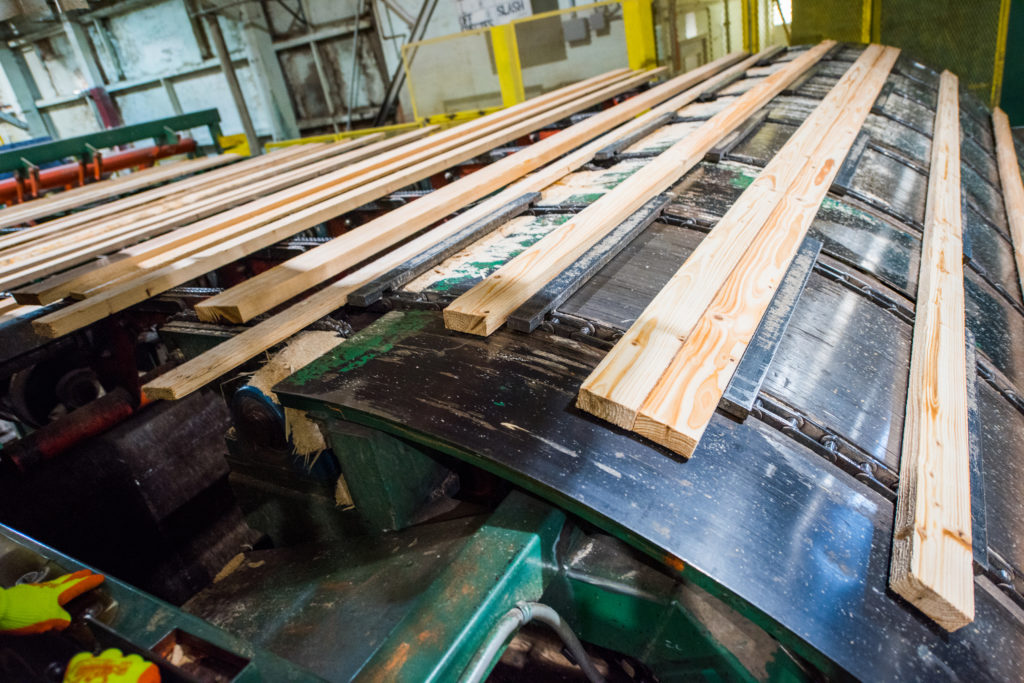Saws, Sawdust and…Software?
A New Series Exploring How Technology Drives the U.S. Softwood Lumber Industry
When Americans think lumber, they may imagine workers in a forest, saw in hand, chopping down trees and stacking logs. But today’s lumber mills rely more on software engineers than brawn. Modern technology is central to the entire softwood lumber industry. It has created better, higher paying jobs for workers across America, promotes sustainability and enables the U.S. lumber industry to stay competitive in order to help build American homes with American lumber.
Modern technology allows mill operations to be more precise, producing higher quality lumber in less time and using more of the log. This type of work requires high-level, technical skills. For example, Pleasant River Lumber in Bangor, Maine recently implemented a new kiln control system that makes it easier and faster to dry lumber. This kiln—or furnace to dry lumber—uses intelligent automation to not only reduce the amount of time it takes to dry lumber, but also enable operators to focus on performing checks and completing other “quality-critical” duties.
On the other side of the country, Swanson Lumber in Oregon recently adopted a high-speed lumber sorting system to modernize and increase efficiency. The new system helped boost production from 30,000 to 50,000 board feet per hour and, according to Swanson Lumber CEO Steve Swanson, has “completely changed the primary breakdown where you first begin to turn the log into lumber.”
Technology also helps the U.S. lumber industry promote sustainable practices. High-tech kilns use less energy and automation helps get the most lumber out of each tree to minimize waste. For example, for every 200 trucks that bring timber to the Pleasant Lumber Mills, only one truck of waste leaves the mill.
All of this is possible thanks to fair trade. Through fair competition, the U.S. softwood lumber industry innovates, invests in technology and grows in production. Mills depend on a fair, competitive lumber market to make capital-intensive investments in high-tech modernizations.
An essential element of fair trade is enforcing U.S. trade laws and the anti-dumping and countervailing duties imposed on subsidized Canadian softwood lumber imports into the U.S. To learn more about these essential duties, check out additional resources here.
This is the first in a series that will explore the role of technology in the softwood lumber industry and how the industry has transformed lumber production in the U.S.



